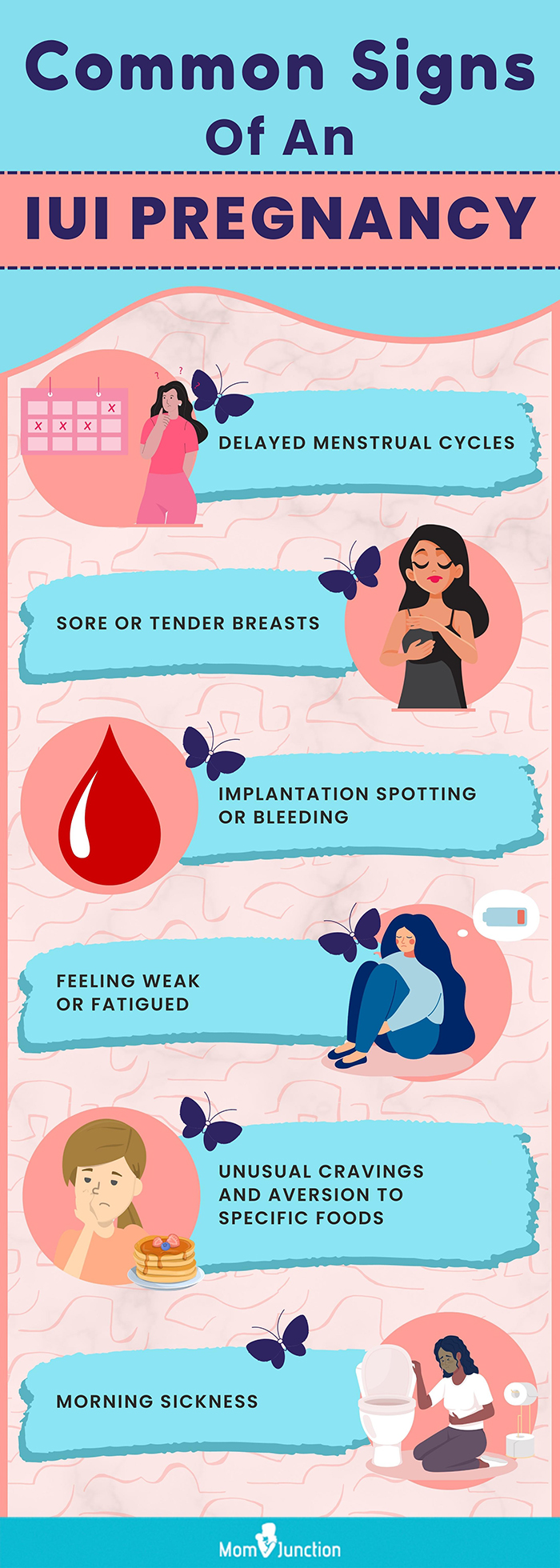
Pregnancy Signs After IUI: A Comprehensive Guide
Intrauterine insemination (IUI) is a fertility treatment that involves placing sperm directly into the uterus. It is often used to treat infertility in couples who have difficulty conceiving naturally. After IUI, many women experience a range of symptoms that may indicate pregnancy. Understanding these signs can help you determine if you have conceived and when to seek medical attention.
Early Signs of Pregnancy After IUI
- Breast tenderness: One of the earliest signs of pregnancy is breast tenderness. This is caused by hormonal changes that occur after conception. Your breasts may feel swollen, sore, or tingly.
- Nausea and vomiting: Nausea and vomiting, also known as morning sickness, are common symptoms of pregnancy. They are caused by the increased levels of hormones in your body.
- Fatigue: Feeling tired or fatigued is another early sign of pregnancy. This is due to the increased demand for energy that your body needs to support the growing baby.
- Frequent urination: You may also experience frequent urination in the early stages of pregnancy. This is because the growing uterus puts pressure on your bladder.
- Mood swings: Mood swings are common during pregnancy due to the hormonal changes that are occurring in your body.
- Light spotting: Some women experience light spotting or bleeding after IUI. This is usually implantation bleeding, which occurs when the fertilized egg attaches to the lining of the uterus.
Later Signs of Pregnancy After IUI
- Abdominal bloating: As your uterus grows, you may experience abdominal bloating. This is due to the increased size of the uterus and the accumulation of fluid in your abdomen.
- Constipation: Constipation is another common symptom of pregnancy. This is caused by the increased levels of progesterone in your body, which can slow down your digestive system.
- Weight gain: You may also experience weight gain during pregnancy. This is due to the growth of the baby and the increased fluid in your body.
- Fetal movement: Around 18-20 weeks of pregnancy, you may start to feel the baby move. This is a sign that the baby is growing and developing properly.
When to Seek Medical Attention
If you experience any of the following symptoms after IUI, it is important to seek medical attention immediately:
- Severe abdominal pain
- Heavy bleeding
- Fever
- Chills
- Signs of infection
These symptoms could indicate a serious medical condition, such as an ectopic pregnancy or an infection.
Confirming Pregnancy After IUI
The only way to confirm pregnancy after IUI is to take a pregnancy test. Pregnancy tests measure the levels of human chorionic gonadotropin (hCG) in your urine or blood. hCG is a hormone that is produced by the placenta after conception.
Most home pregnancy tests can detect hCG levels as early as 10-12 days after ovulation. However, it is important to note that some tests may not be as sensitive as others. If you get a negative result on a home pregnancy test, but you still suspect that you may be pregnant, you should see your doctor for a blood test.
Next Steps After a Positive Pregnancy Test
If you get a positive pregnancy test after IUI, it is important to see your doctor for a prenatal checkup. Your doctor will confirm your pregnancy and provide you with instructions on how to care for yourself and your baby.
Your doctor may also recommend additional tests, such as an ultrasound, to monitor the baby’s growth and development.
Conclusion
Understanding the signs of pregnancy after IUI can help you determine if you have conceived and when to seek medical attention. If you experience any of the symptoms described in this article, it is important to see your doctor for a pregnancy test and prenatal checkup.